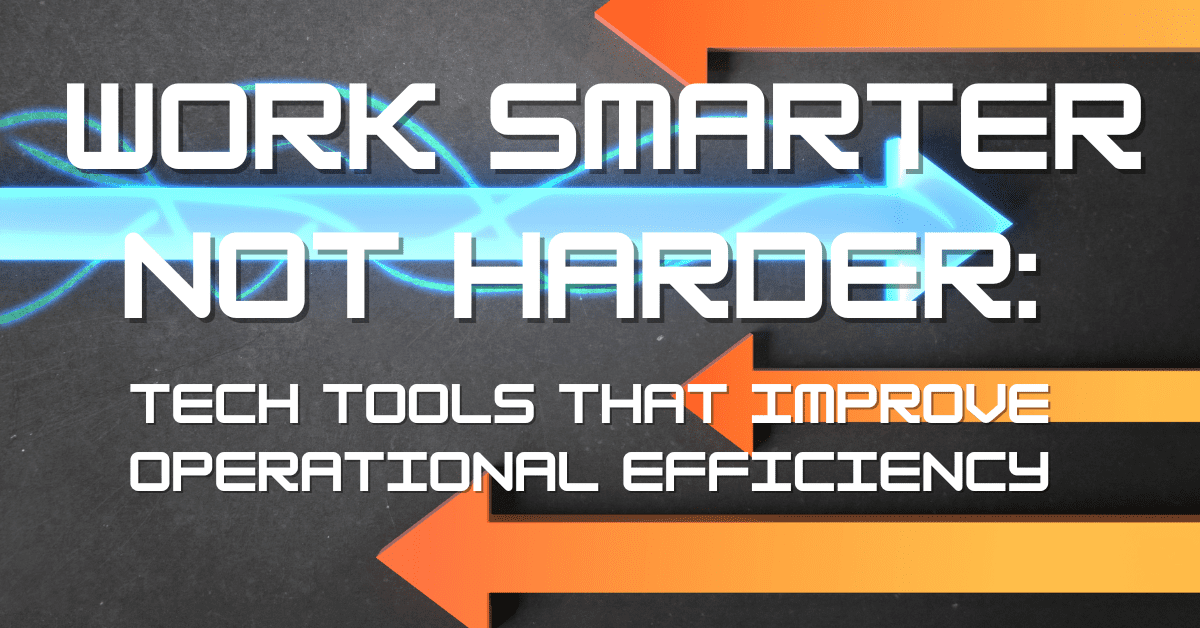
With seasonal businesses, efficiency is everything. You can’t add more hours to the day, but you can use your time wisely by taking advantage of a wide range of technology.
“It’s all about being more efficient,” says Tom Gardocki, owner of New Era Excavation, LLC, based in Londonderry, New Hampshire. “Technology should equal efficiency if you utilize it correctly. Efficiency equals more profit for your company or more jobs you can do in a year.”
“Whether we like it or not, the world grows more and more digital every day,” says Shealy Langley, office manager for R&R Landscaping, based in Auburn, Alabama. “Anytime we can streamline a process and make it more efficient, we are winning – even more so when we maximize what each technology solution brings to the table.”
New technologies that streamline industry operations range from anything like new types of equipment that reduce the number of hours on the job to apps that improve safety and reduce distracted driving.
Remote-Controlled Mowers
Ever had trouble maintaining steep slopes or retention ponds?
Landscape Workshop, based in Birmingham, Alabama, has been using RC Mowers as a solution since February 2021. Jeremy Comer, enhancements manager/senior account manager for Landscape Workshop, says he heard about them from his former boss, who is now a sales rep for TriGreen Equipment.
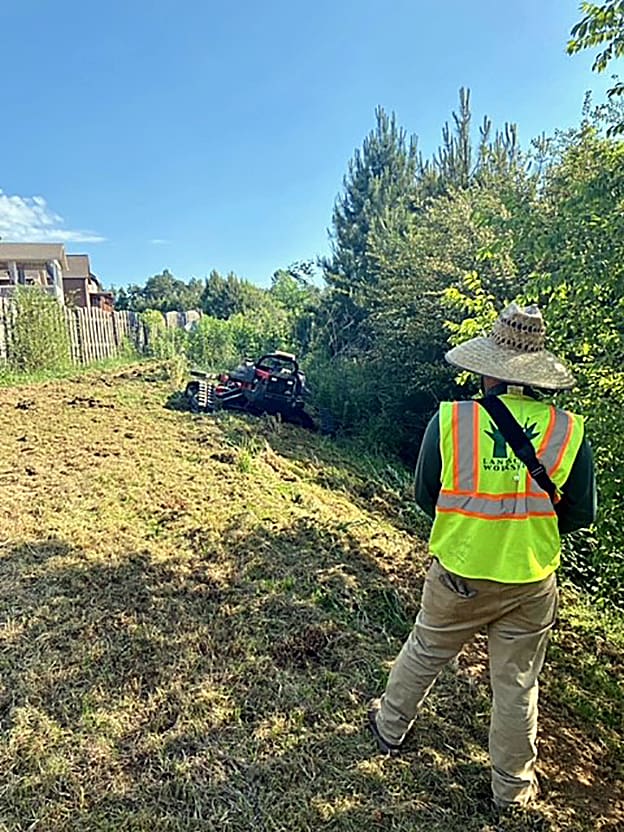
They now use the remote-controlled mowers on multiple properties throughout Central Alabama. Comer says they utilize the RC Mower on seven to 10 properties.
“We utilize the RC Mower on large commercial properties that have fenced-in retention/detention ponds that need the banks maintained,” Comer says. “The alternative would be sending in men to weed-eat the banks of these ponds. This is particularly dangerous because these environments can harbor poisonous snakes, so it is in the best interest of Landscape Workshop to be able to not send our employees into these areas whenever possible.”
With the RC Mowers, they can have one employee stand outside of a fenced area and do the job safely. Comer says they also use the remote-controlled mowers for mowing steep slopes at HOAs.
“The alternative to the RC Mowers used to be sending a large crew out to weed-eat these hillsides,” he says. “This is a very labor-intensive thing to do and a seemingly endless process. Utilizing RC Mower has allowed us to use our employees for additional productive work for our customers rather than string trim hillsides day after day. In today’s environment, this is key in any service-based business.”
Comer says the main benefits of using remote-controlled mowers are safety and efficiency.
“The ability to keep our employees out of hazardous areas like overgrown retention ponds and off steep slopes is great,” Comer says. “The old way of string trimming these areas is also very labor-intensive and being able to substitute the RC Mower helps safeguard our employees from heat and exhaustion-related safety incidents.”
He says thanks to the RC Mowers they can send one person with a mower instead of five people with string trimmers. This allows them to reallocate that manpower to other jobs to better serve their customers.
As an added bonus, Comer says the learning curve is minimal as he was able to learn how to operate the equipment in a 10-minute demo with the sales rep. He says their production crews were able to learn in the same manner.
“The green industry is an ever-evolving industry,” Comer says. “We have to be able to adapt and utilize new technologies to our advantage in order to stay one step ahead of the competition. As a rapidly growing company, the ability to capitalize on technology like RC Mower and use our people in more efficient and productive ways makes Landscape Workshop a leader in the green industry.”
Comer advises analyzing how a piece of technology could provide your company and your customers the best service experience while still being profitable long term. If things add up, that asset should be added to your arsenal.
Laser Measurements in Hardscaping
On hardscaping projects, technology like ZipLevel and Trimble Earthworks can turn two-person tasks into one-person jobs.
Gardocki says they’ve been using ZipLevel for 10 years when it comes to estimating jobs.
“It’s a great tool, very fast and easy to use, to just figure out height differences on a job site,” Gardocki says. “We utilize it mostly doing estimates, figuring out how many stairs we needed in a walkway, or how tall a retaining wall needed to be.”
He says they aren’t limited by line of sight like with a traditional laser. He says It also allows them to be more accurate in their estimating, rather than eyeballing things.
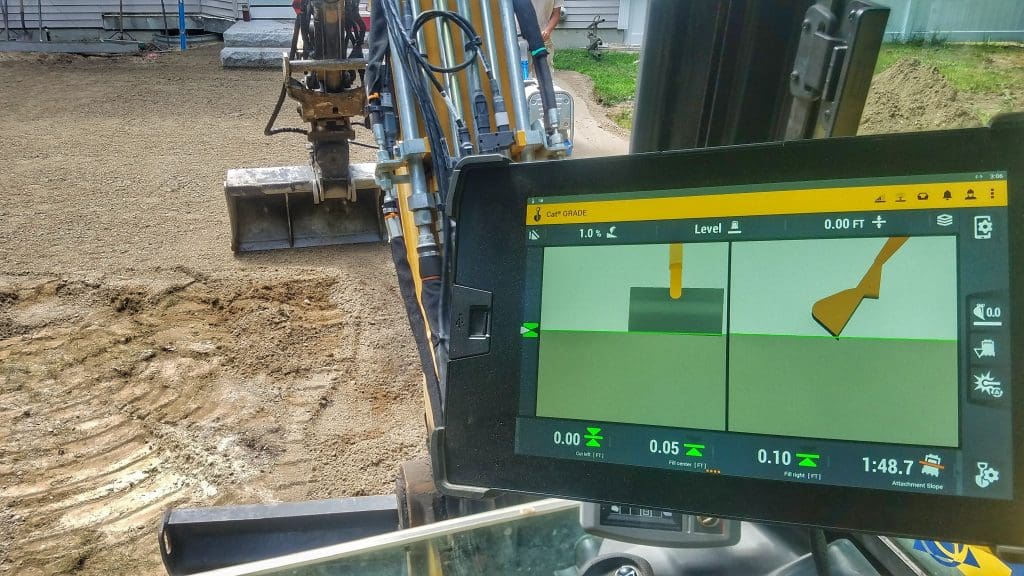
Gardocki also uses Trimble Earthworks system on the jobsite.
“Basically, what that does is it’s giving you grade in the machine, no matter the position of the machine,” Gardocki says. “It has sensors all over the machine and a screen. It basically works the same way as a laser, but it’s giving you all that information in the cab. You don’t need another person outside of the machine to hold the grade rod for you.”
He admits that the initial cost is high, around $20,000, but the software allows an operator to do an excavation job alone. He says more people in the hardscaping world have started taking advantage of Trimble because of the labor shortage.
“People are looking at it as replacing a guy on the ground and you can justify that $20,000 pretty easily,” Gardocki says. “In probably just half a year you can pay for it.
As for the learning curve, end users are provided training when they purchase the system. Gardocki says after a week or 40 hours of using it, you’ll be pretty proficient with the system. He says he heard about the system through their local Caterpillar dealer.
“We’ve always been trying to find tools or equipment or anything that can help save labor or make the jobsite better for our laborers,” Gardocki says. “Anything that can help the guys out, we always try to invest in that to make the jobs easier on the guys.”
Video as a Sales Tool
Gardocki has also been able to take advantage of his GoPro recordings to help close on jobs. He started out just filming his jobs for fun as content for his YouTube channel, but when he started posting time-lapse videos of his work, that’s when his channel started to grow. Since then, he has been able to leverage these time-lapsed videos into a sales tool.
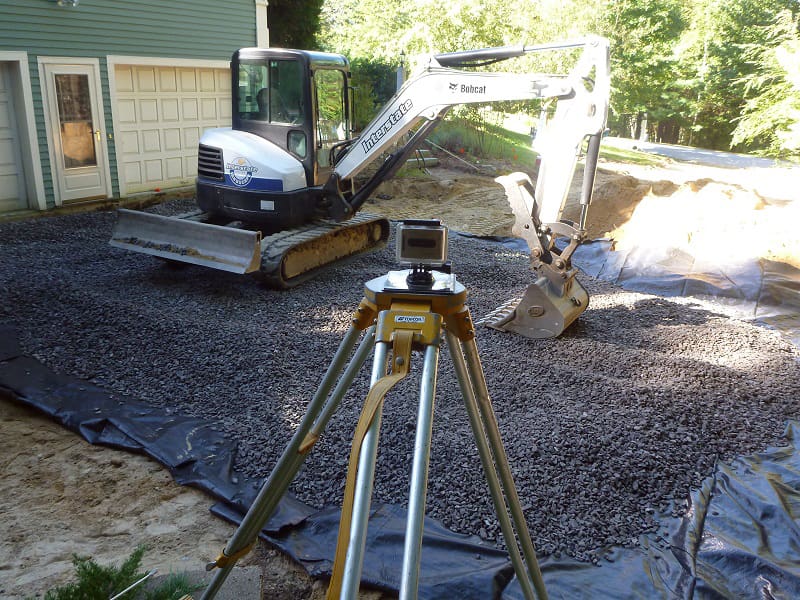
“(I’ve) really been able to use it as a benefit to our business on being able to help sell jobs,” Gardocki says. “Customers could see a whole job that we were doing from start to finish in four or five minutes. So, it just kind of gave them an idea of what would go on at their site before we even showed up.”
He says creating these time-lapsed videos is pretty straightforward as there is a time-lapse setting on the GoPro and they just move a tripod with the camera on it around the jobsite.
“It’s a cheap thing that you can do that will 100 percent increase your closure on potential sales,” Gardocki says. “It’s not something that’s really going go out and get you more leads. It’s about closing the leads that you get.”
He says that these videos have helped give customers a better sense of what the construction process is like.
“We found the biggest thing with customers is they didn’t really realize the work that went into it or, to be honest with you, the destruction of the yard before we can make it better,” Gardocki says.
Gardocki says you can also incorporate these videos with your social media marketing as a powerful tool. He encourages landscape professionals to take advantage of social media, not only to reach more customers but to connect with other pros about the tools they’re using on the jobsite.
“We live in a pretty cool age where you can connect with lots of other hardscapers in the industry through social media,” Gardocki says. “So, if you’re on there and you see another company utilizing a tool that you think might be beneficial for your company, reach out to that person and ask them how they like it and the pros and the cons to it and why they’re using it.”
Virtual Sales System
Another tool that can help with efficiency on the sales side is Groundwork. Groundwork is a virtual sales system that R&R Landscaping implemented in May 2020 as they tried to roll with the COVID-19 punches. They heard about the system from an industry peer.
“It helped us continue doing business during those uncertain times by replacing in-person consultations with virtual walkthroughs,” Langley says.
With Groundwork, they text a survey link to their leads that collects their address, project goals, budget, timeline, referral source and walkthrough video.
“Most leads request this text by submitting their contact information on our website,” Langley says. “For those who choose to call our office instead, we manually prompt a text from the Groundwork dashboard. Either way, once the lead submits a survey and video, we follow up by phone to schedule an onsite consultation.”
Langley says Groundwork is an easy tool to integrate and the Groundwork team made the setup process simple. They remain available to troubleshoot issues as well.
Langley says they do get pushback from clients about having to record their property for a variety of reasons. Some are less comfortable with technology and others are concerned it will replace the in-person consultation. She says they try to explain the walkthrough video better prepares their team for the consultation, but they don’t push leads to do it.
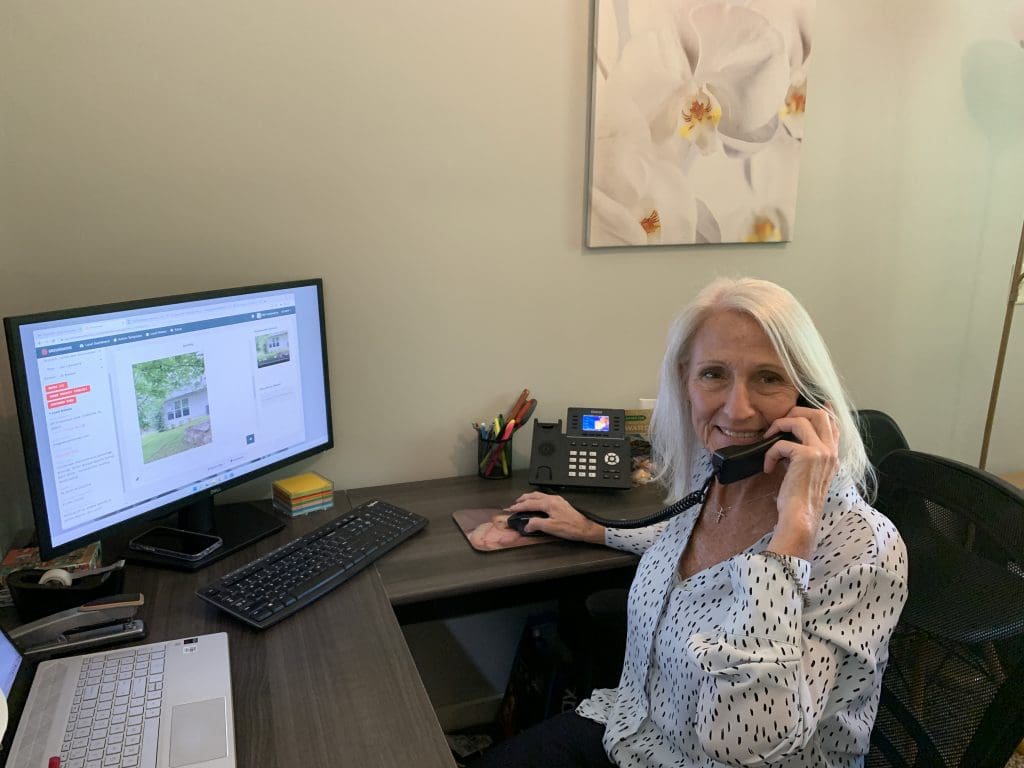
“While it’s definitely our preference to review a video submission, as it helps us vet leads, clarify project goals, and strengthen rapport during the scheduling process, we don’t require it to move forward,” Langley says. “We simply collect the information we need by phone and manually add the lead to our Groundwork dashboard, allowing us to utilize Groundwork as our sole lead management system, regardless of how the lead came in.”
Since implementing Groundwork, Langley says having a visual understanding of the client’s property and goals simplifies the scheduling process. She says she’s able to have more personalized and productive conversations with the client. On the sales end, sometimes the initial consultation is eliminated altogether.
“Either way, our sales team is always better prepared to conduct a more efficient consultation because of Groundwork videos,” Langley says.
While they occasionally have issues with silent walkthroughs, Langley says the Groundworks team recently added a graphic to their survey that provides video tips for the lead, like “Talk to us in your video. Zoom out and show all project areas. Point out any problem areas.”
“The Groundwork team, in particular, is so willing to listen and improve their product that it seems like a no-brainer to dive in headfirst,” Langley says. “The product is continually being improved in tiny increments, whether stemming from creative ideas by the Groundwork team or feature requests from their direct users.”
Groundwork has also been very effective at identifying R&R Landscaping’s ideal clients on the front end.
“If only one dead-end consultation is eliminated or weeded out each month, the opportunity cost breaks even with the Groundwork cost,” Langley says. “Finally, an unexpected perk of Groundwork has been how it has helped our administrative team connect the dots between the field and the office and to grow more acquainted with the work our team does every day.”
Driver Safety Software
Technology can also help enhance your crews’ safety. In the case of The Davey Tree Expert Company, based in Kent, Ohio, they rolled out the app TRUCE in early 2021.
This app restricts mobile device use when paired with a beacon installed inside Davey vehicles.
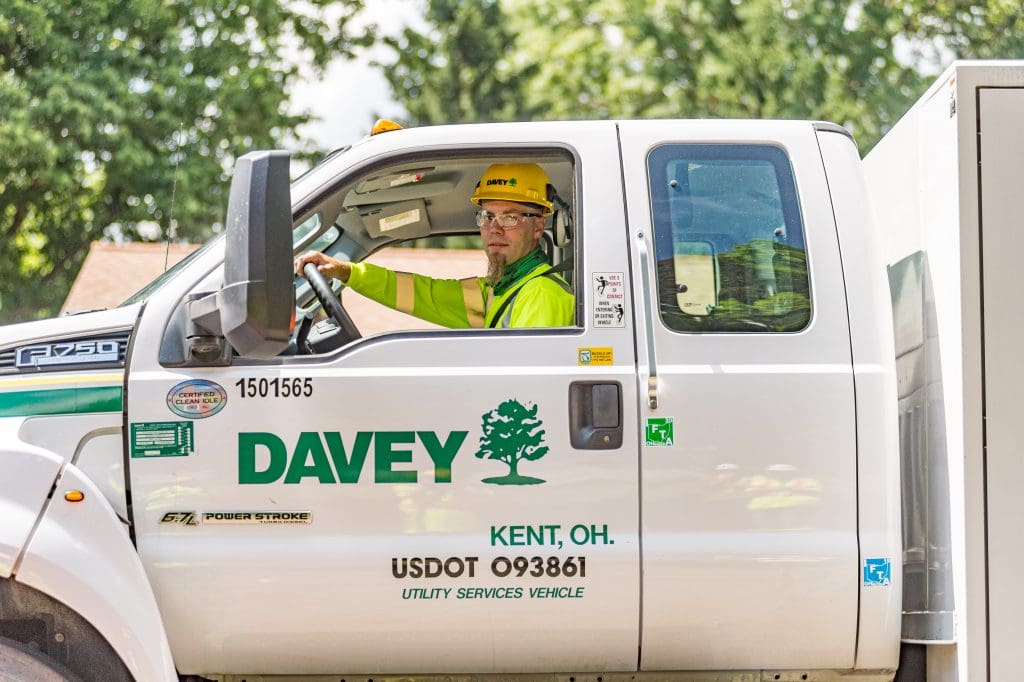
“The TRUCE app, once installed on company-issued mobile devices, limits cell phone capabilities and notifications when the beacon is detected,” says Paul Milano, director of fleet services for Davey Tree. “Driver safety increases with the TRUCE app, which suppresses text messages, mobile app notifications and non-hands-free Bluetooth phone calls while driving. Calls, text messages and app notifications suppressed by TRUCE remain on a user’s phone and are shown as available when a TRUCE user ends their drive.”
This app is required for all Davey employees, including managers, who drive a vehicle up to and including Super Duty vehicles.
According to Milano, from January 2021 to April 2022 at Davey, TRUCE has suppressed 87,988 calls, 260,926 app notifications, and 1.4 million text messages over 6.9 million miles driven.
“Distracted driving has become prevalent in everyone’s daily lives,” Milano says. “At the end of the day, we know we will make an impact even if we help prevent just one driving incident.”
Milano says that their employees who have been using TRUCE the longest love the app because it helps them eliminate the bad habit of constantly wanting to check their phones when they get a notification.
“We want to keep our employees safe,” Milano says. “That’s really what it comes down to. We’re also protecting our communities where we live and work by reducing distracted driving in TRUCE-equipped vehicles.”
This article was published in the July/August issue of the magazine. To read more stories from The Edge magazine, click here to subscribe to the digital edition.

